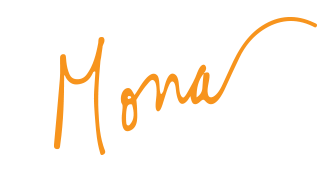Choose Life! Uvacharta Bachayim
Libretto, Delores Dufner, OSB
Instrumentation options
Full Orchestra: Piccolo (double Flute 2), Flute, Oboe, Clarinet in Bb, Bassoon, 2 Horn, 2 C Trumpet, Tenor Trombone, Bass Trombone, Tuba, Timpani, 2 Percussion, Harp, Keyboard (Synthesizer or Piano), Strings
Chamber Orchestra: Piccolo/Flute, Clarinet in Bb/A, Bassoon, C Trumpet, Trombone, Timpani, 2 Percussion, Keyboard (Synthesizer or Piano), Strings
Piano/Vocal
Voices: Soloists: Soprano, Mezzo Soprano, Young Soprano, Tenor, Solo Choir Tenor, Bass, Actor. SATB choir.
50:00 min.
©1994, 2010
Publisher: Reese & Hassing Music
BUY CD
CD review
Visit the Website
Description
Many musical styles and sounds occur in the score. There are frequent musical references to Jewish tradition: The processional and overture “O Holy One All-Wise”, uses the melody “Leoni” from the Jewish hymn “Yigdal”. This tune also occurs in many Christian hymnals as “The God of Abraham Praise”. The music of Adonai and Lazar includes traditional Jewish modes and hymnody, recitative, and Klezmer music. Music in the Christian tradition such as Gregorian chant, polyphonic motets, Anglican Verse and Choral anthems also appear in the work.
Program Notes:
The dramatic oratorio, Choose Life, Uvacharta Bachayim, draws on Jewish and Christian music and scripture, as well as the writings of Holocaust survivors, to create an interfaith commemoration of the Holocaust. It was composed during Mona Lyn Reese’s 1993-94 Faith Partners Residency sponsored by the American Composers’ Forum and the Otto Bremer Foundation.
The piece was a spectacular success by modern standards. In an era when most new work receives only one or two performances, Choose Life creators were inundated with requests for scores and inquiries regarding future performances. Many new music concerts attract audiences of a hundred people or fewer. Choose Life packed 1500-seat auditoriums and received spontaneous standing ovations at every concert. Choose Life has received national acclaim and was nominated for a Pulitzer Prize in 1995.
Choose Life combines solos, choruses, and an actor. The readings were selected from Holocaust survivors’ writings. Dufner’s libretto gives Choose Life its power to inspire and empower a more compassionate society. Her poetry has strong images and sublime rhythm. Her work includes avenues for listeners to access their own spirituality.
Reese combines Gregorian chant, polyphonic motets, Anglican Verse and Choral anthems, Jewish modes and hymnody, recitative, and Klezmer music to create the score. Music and text express bitterness, anguish, anger, our sorrow and need for comfort, our will to overcome evil, and our determination to choose life over death. Choose Life is staged like an opera, with singers in costumes, minimal sets, lighting, and movement.
